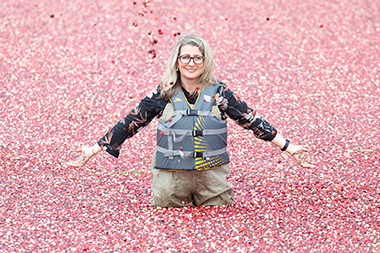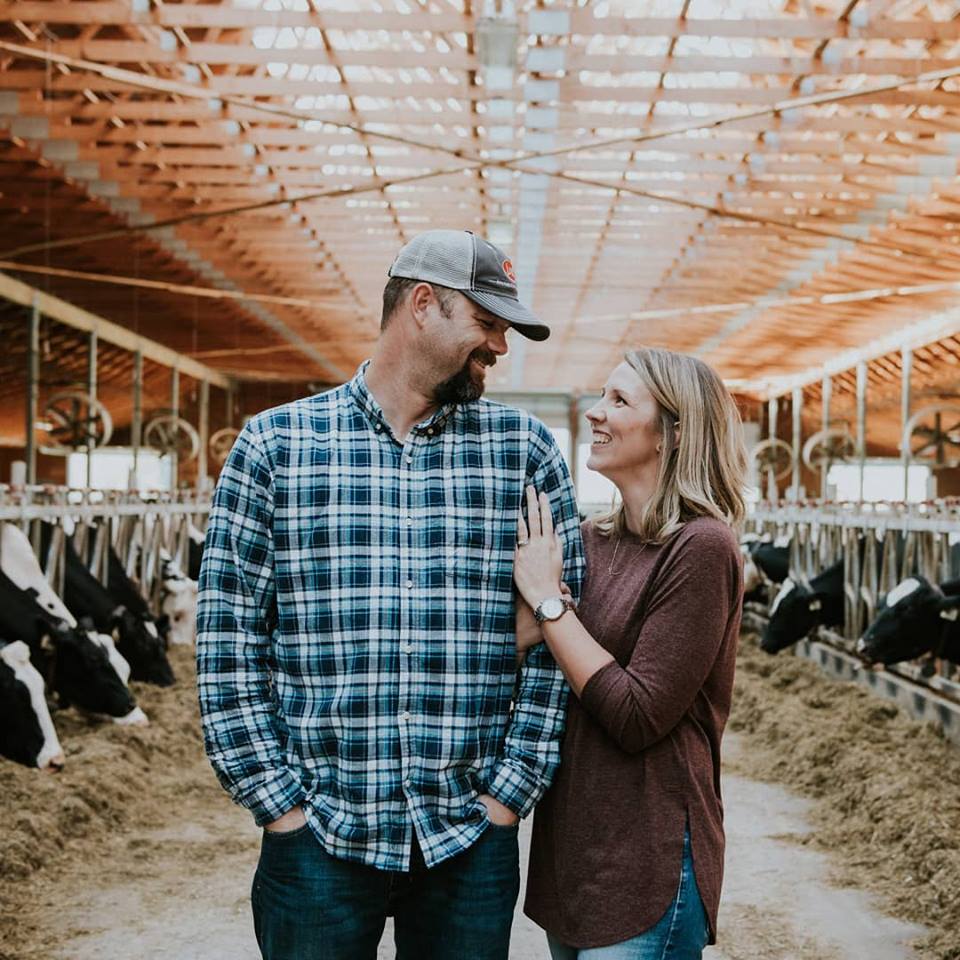VANCOUVER – Becoming agriculture minister was a dream come true, Lana Popham said during her initial interviews as BC’s top farmer.
But making her dreams a reality has continued as she’s worked to give attention to underserved farm sectors and advance a mandate designed to Grow, Feed and Buy BC – and, above all, keep farmland productive.
“There’s so much the ministry has been doing,” she said during an in-person conversation in Richmond on November 30, a day focused on BC’s farmers’ institutes. “I had tons and tons of ideas that maybe weren’t necessarily part of the mandate but were able to be fit into the mandate – smaller scale things and larger scale things – and just to see some of them come into action is pretty incredible.”
The gathering of farmers’ and women’s institutes was one example, as was the Every Chef Needs a Farmer, Every Farmer Needs a Chef event earlier in the month, both of which focused on building connections aimed at growing the province’s farm sector.
“A lot of it is just about communicating,” she says. “You’re really trying to support the farm base – not just the land base, but the farmer base.”
The institutes conference brought together 45 people from around the province for less than $14,000, a small drop of her ministry’s $93.1 million annual budget.
“I’ve got a bigger budget than there’s ever been, historically, in the province, so I’m able to put money into bringing people together in ways that haven’t happened before,” she says. “I feel like I’ve been able to connect urban BC and rural BC in a way that hasn’t happened for a really long time.”
Those connections are important, and not something that happens in every jurisdiction. With the federal election approaching later this year, Canadian Federation of Agriculture staff want to make sure that urban politicians recognize the importance of rural issues.
A former organic farmer herself, Popham gets it, and she thinks many others in BC do, too.
“This is the moment for food. There’s a will of the public to revisit food culture as well as sustenance,” she says. “I don’t think you could have had my mandate 15 years ago and been successful with it. It would have been much harder.”
But those consumers don’t always have it right, as public trust initiatives the BC Agriculture Council is pursuing show. Consumers may trust farmers, but they don’t always trust farming systems.
BCAC executive director Reg Ens notes that whatever concerns some consumers have about domestic practices doesn’t stop them opting for cheaper products from less-regulated jurisdictions.
Meanwhile, the regulations in BC mount. Whether around wages, farm labour, animal welfare, farmland protections, water management or the new Agricultural Waste Control Regulation, farmers have a full-time job keeping abreast of regulations on top of the business of growing food.
While the province wants to grow production, that’s not always how farmers experience it.
“There’s a perception that this government is not instilling a lot of confidence in business investment,” Ens says. “They see some really exciting things that could happen, but they see a lot of challenges [and] they’re not convinced that this government is on their side.”
Ens quickly adds that Popham “is very much on industry’s side,” noting that the challenges are coming from beyond her ministry.
“We definitely don’t want to blame her for some of these challenges,” he says.
Popham cherishes her close working relationship with the ministries of health and rural development but the environment and labour ministries are leading the charge on water management, wages and farm worker protection.
Ens expresses particular concern about the new agricultural waste regulation, widely expected to take effect this spring.
“We want to encourage good stewardship – that’s good for all of us. But how do we do that in a way that doesn’t put farms out of business?” he asks. “Are we considering the economic factors that all these changes are going to have?”
Dairy producers have felt themselves in the crosshairs of the new regulation, and are also grappling with the loss of market opportunities thanks to federal trade deals. Regulatory costs and a smaller market are hardly a recipe to grow BC in their books.
“Government is able to play a role in supporting,” says Popham, with winsome optimism.
She says consumers need to be told about the high quality of BC milk, and encouraged to support local producers who – on the grocery store shelf – are largely anonymous, with most milk lacking even the Dairy Farmers of Canada logo.
“Supply management hasn’t really needed a provincial marketing program before,” she says. “Consumers … want to support that, but there’s absolutely no way when they walk into a shelf of milk of figuring out what’s BC milk.”
She’s wants a BuyBC logo on milk to boost awareness and connect with consumer concerns.
Similarly, she points to the dairy sector to illustrate how industry is onside with some regulations.
While poultry groups have expressed concern at plans to entrench industry codes of practice in animal welfare legislation, Popham says dairy is on board because farmers know it’s what consumers want.
“Five years ago, there was resistance. Now they understand that consumers are looking for that assurance,” she says. “Maybe they’re not super-enthusiastic, but they certainly have embraced it and they’re willing to work with it.”
Popham is also clear that she wants to keep working with farmers.
“I’ve got a lot more to accomplish in my ministry,” she says. “I thrive on getting stuff done so when we get one thing done, I just move on to the next.”
Although not a big fan of flying, she makes an effort to visit rural BC as often as possible, keeping her ear to the ground for what she can do next.
“I get to sit down with people one-on-one often, and that inspires me,” she says. “Agriculture’s pretty fun that way. You can make changes that help people in a big way.”


 Wave of retirements sweeps through dairy associations
Wave of retirements sweeps through dairy associations